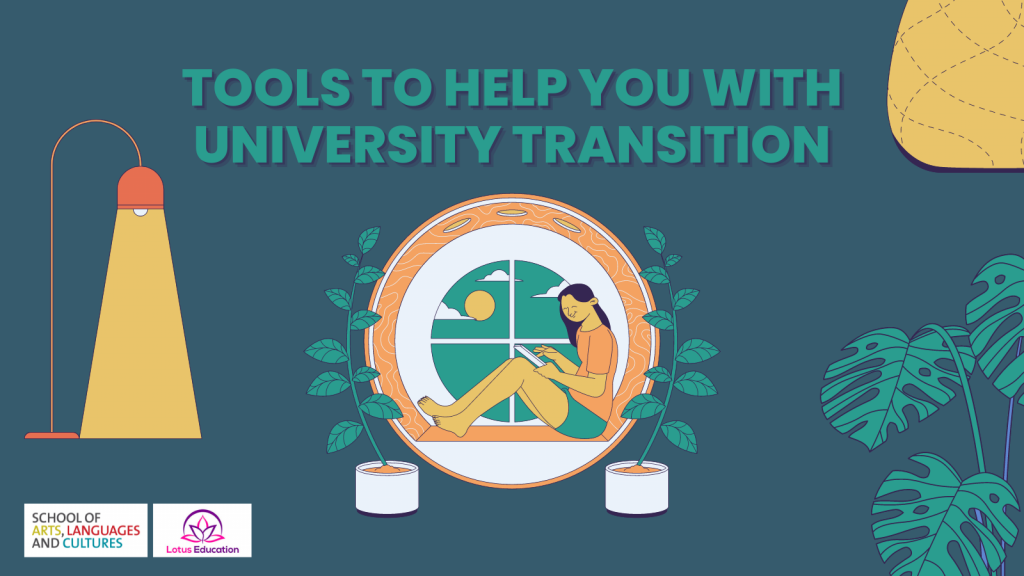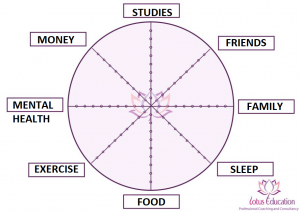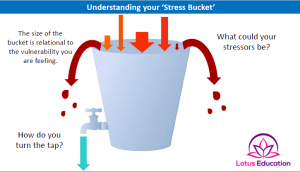
Life-Coaching Tools to Help You with University Transition
University life is a lot of fun, but it’s also just a lot in general. Leaving home is a huge and exciting change, but combined with things like lack of sleep and essay deadlines, it can be really stressful. Don’t worry if you’re struggling – everyone gets stressed from time to time, but there are tools and techniques you can use to keep on top of everything.
On November 16th, we were delighted to welcome Sue Webb from Lotus Life Coaching to SALC. Sue gave a talk on a few useful ways you can manage your physical and mental wellbeing. Here are a couple of strategies she recommends to keep happy and healthy all year round:
The Wheel of Life
Firstly, the wheel of life is a great way to map out how you feel about various aspects of your life. Draw a circle, then divide it using eight lines (the spokes). Each spoke represents a different part of your life, and can be whatever feels important to you. For example, ‘friends’, ‘sleep’ or ‘money’. Score each spoke from one to ten depending on how satisfied you currently are, with one in the middle and ten on the edge. By joining these scores together, you can get a clear picture of your current life. The wheel also shows how these different aspects might be linked – for example, if ‘friends’ scores nine, but ‘sleep’ and ‘money’ only two, perhaps it might be a good idea to have a night or two in next week.

Example of The Wheel of Life, source: Lotus Education
Stress Bucket
Secondly, the stress bucket helps you visualise how stress levels change over time. The bucket is your capacity for stress – everyone’s will be a different size depending on their circumstances. This bucket gets filled up by stressors, such as money worries or essay deadlines. Crucially, your bucket has a tap – the things you do to relax. By noticing when you’re getting stressed and making sure you open that tap regularly, you can stop your bucket from getting too full. Just a few little things like going for a run or a cosy night in can make a big difference to how you feel.

Stress Bucket, source: Lotus Education
Sue really emphasised that these little things are crucial. It’s great to have big lifestyle goals, but if you can’t keep them up consistently they won’t help in the long term. Instead, it’s important to prioritise the small, achievable steps you can take to improve your lifestyle. For example, being in bed by 11 three nights a week, or working on a hobby for ten minutes a day. These small changes add up, and will really help you build a longstanding healthy and happy lifestyle.
The University also provides a wide variety of support for all levels of need. Whether you’re in a crisis, or would just like a few tips on how to manage stress a bit better, there’s help available. The support wheel is a great tool for finding out what resources you should access, depending on how you’re doing.
As the days get shorter and big deadlines start to loom, you might be finding things a bit harder. But hopefully, the strategies Sue suggested can help you identify and manage what’s getting you down, and what helps you feel better. If these aren’t enough, or if you’re just looking for more ideas, the University has a lot of support available, and there’s always someone who can help.

0 Comments